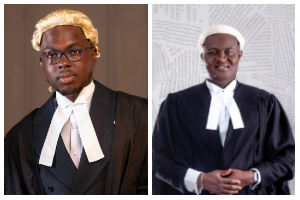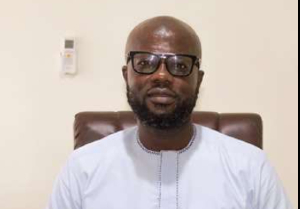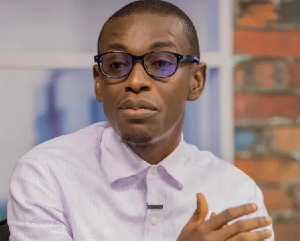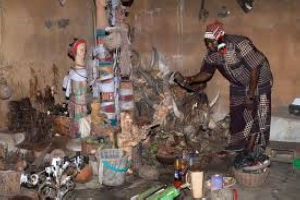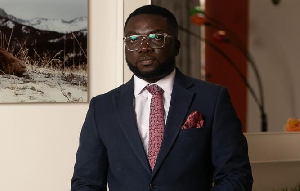There are ten Regions in Ghana. But the Zongo is the grape-vine eleventh region of Ghana
The term 'Zongo', varies in meaning depending on the context in which it is used. Zongo is used to describe a neighborhood which by simple extension applies to the dwellers of the area, which is inhabited by the members of the Zongo community.
Zongo is an heterogeneous community with a unique cultural practice, completely different from any community and ethnic group in Ghana, And the Zongorians are bounded together by Islam not ethnicity.
In effect, when a group of people live together, regardless of their place of origin, and practice Islam together, that particular community or neighborhood automatically becomes a ZONGO.
Zongo is dominated by tribes of Northern descent, coupled with people from our neighbouring countries like Burkina Faso,Nigeria, Mali, Ivory Coast,Niger,etc.
The Hausa's from Northern Nigeria are the pioneer settlers of the Zongo. The early settlers constructed make-shift houses with the intention to work hard ,raise some capital and return back to their locality. As it has usually been with imigration, many adopted their new found place as their permanent home.
Despite the Heterogenous nature of the Zongo, the Islamic religion which frowns on ethnic and racial discrimination, and which binds us together encourage Zongorians to inter-marry. because we inter-marry, the Zongo has revolutionalize into one ethnic group. The late chief Imam of Ashanti, whom most of us regard as an epitome of peace, Mallam Imrana, (may Allah bless his soul), used to say that "ko waa nah gidan kowaa" which literally means each Zongorian has a blood tie with every house hold in the Zongo Community. Infact, the late Imam used to use that phrase to calm nerves when tension flares up between two acrimonious rival groups. each ethnic group maintain some aspects of their norms and tradition and blend it with the Zongo tradition which is dictated by the Islamic teachings.
Obviously, The Zongo is the citadel of Islam in Ghana. A typical Zongorian can easily distinguish between a Kumasi, Accra orTakoradi Zongorian etc ,by the quality of his Hausa dialect and his attitude and appearance.
The Zongo Community redefines each particular ethnic group with a unique outlook and cultural dispositions which differs from it's original ethnic grouping. Hausa is the dominant language in the Zongo. In my subsequent write-up, I will state how Hausa became the "official" language of the Zongo. IT must be state on record that not all the Zongos has the greater population of it's dwellers as people of Northern descent. .90 percent of the population of Adankwame Zongo in Kumasi are Asantes. people from the three Northern regions dominate the Zongo Today, but it doesn't make the Zongo an extension of the Three Northern regions, because Zongo is unique in it's own way. I am a typical Zongorian from Kumasi. And I usually take it kindly when a typical Northerner taunt me as "KANMONGA" because I regard myself simply as Zongorian but not a Northerner, eventhough My ancestors are from Manga in Bawku. Mind you, there are also Zongos in the Three Northern Regions.Northerners and Zongorians are two distinguished people with varied culture, dispositions and different orientations.everybody can be a Zongorian ,but not everybody can be a Northerner.
Zongolism trascends ethnicity. it is about togetherness and neighbourliness.Although Zongo is scattered all over Ghana, It appears as a regional and political entity with it's own unique characteristics, dynamics and temperaments.
Those who claim that Zongorians are not Ghanaians may be right or wrong. Yes, the Zongo has always been a safe haven for aliens from the neighbouring countries, but those of us in the Zongo know the roots of one another.
It's equally a fact that there are Northerners such as Mamprusi, Dagombas, Gonjas, Bissa(Busanga), Grusi, Wala, Dagati, Frafra, Kanjaga(Builsa), Sisala, etc represented by their tribal chiefs dwelling in the Zongo.Those mentioned ethnic groupings even form the majority in the Zongo. Zongo predates independence. And who are you to tag those whose fore-bearers were living in Ghana since the colonial era as Non-Ghanaians? This is just an introduction. There are more to the ZONGO than meet the eye. I hope to throw more light on Zongo and Zongolism on this forum. my greetings to Al-adj ,Dominic Domfeh(UK) and Mohammed Ali.
Tanko Ali Yahaya.
Independent Minded Zongorians. skiliwonda@gmail.com
Opinions of Monday, 5 August 2013
Columnist: Yahaya, Tanko Ali


